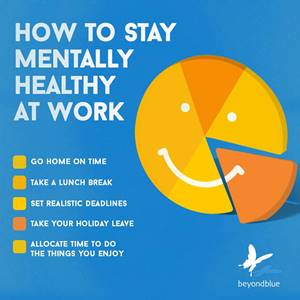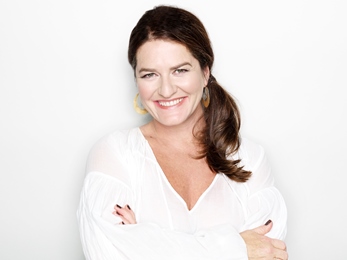On October 10, take time out to consider (and check-in on) your own mental health and those around you.
It has been a busy season for SPA+CLINIC, from launching a new website to multiple print deadlines and endless interstate travel, stress is indeed all around. However what is key within our small but sensitive team is awareness and care for others.
We talk of ‘energy’ a lot as a team and have a good understanding of how each of us is feeling at any given time for stress, anxiety, anger, depression can seep in an any moment, from a multitude of directions — and even silently so.
“I’m hearing a lot of talk about energy lately. Not so much the “I’m full of energy today” or “I have no energy” (or the electricity bill) kind as the vibes, for want of a better word, that surround us on a daily basis. The kind that come from other people, as well as those we emanate ourselves,” says SPA+CLINIC editor, Jenni Gilbert in her upcoming editor’s letter.
“This energy, to those who are really attuned and soak it up like a sponge, it can be akin to a physical presence. If the energy is of the negative or downright toxic variety, it can even make them physically ill or emotionally distraught…Lifting the energy of a space, your workplace, will bring people together as a happier, more productive team.”

Raising awareness of mental health issues around the world and mobilising these efforts in support of mental health, World Mental Health Day (celebrated globally on October 10) provides an opportunity for all of us to openly discuss mental health issues, and what more needs to be done to make mental health care a reality for people not only in our friendship or work circle but worldwide.
But how do you stay mentally healthy at work? With our busy schedules, it’s easy to become stressed and overwhelmed with work especially when our industry is geared towards the ‘wellbeing’ of clients first — and staff only when there is time.
At SPA+CLINIC we schedule regular walks or breaks — these can be as simple as a stroll together to the kitchen for a cup of tea, a quick trip (shoes off) to our local park or as lavish as lunchtime yoga —all contributing to positive mental health. And whilst it’s important we look out for each other, we acknowledge that we must make a commitment to ourselves to invest in our wellbeing for greater peace of mind.
Naturopath, nutritionist and Lifestream wholefoods ambassador Janella Purcell agrees, and says making a promise to change or adopt new habits is the first step in taking charge of a person’s own wellness and vitality — physically and mentally.

“Our mind is not separate from our body – what we eat, think and say all can have impact on how mentally vital and together we feel,” she says.
“Mental Health Week is the perfect marker for change. Make a promise to yourself, even with just one simple action, such as adding a sustainable, vegetarian omega3 source to your diet, and you’re setting the stage for a healthier, happier you. Intention is highly underestimated, but an incredibly powerful tool that we all possess.”
This change could be to do something nice for a friend, or stranger; thank someone, smile, or volunteer; spend more time with family and friends; focus on appreciating what’s in your surroundings; learn a new skill; give back to the local community; or take up a new form of exercise.
Take this opportunity to talk to your team about mental health, what it means to them, how they are feeling and what you can all do to create a happier, healthier work environment that benefits your staff as much as it does your clients.
Janella shares her top recommendations to foster a healthy mind:
- Feed the Brain
People who have the best quality diet have the lowest risk of development of depression and anxiety [1]. We also know that diet affects immunity. One of the most important foods you can introduce to your diet is Omega-3. There is much evidence[2] to suggest lack of consumption may be associated with mood disorders, with research suggesting Omega-3 is related to a number of biological processes associated with brain functioning. - Exercise
Studies show a strong relationship between depression and inflammation—some suggesting depression is an inflammatory disorder. Depression is a state of immune activation. There is a low-grade increase in the inflammation that occurs not only in depression but in most major psychiatric disorders [3]. Those who are the most physically active seem to have the lowest risks of developing depression and anxiety. Why? Exercise releases feel-good chemicals including endorphins, which may help ease depression. Exercise can also reduce the chemicals that cause inflammation and often worsen depression — plus it helps to raise body temperature, which can calm things down. - Sleep
Many of us underestimate the value of getting enough good quality sleep, regularly. The optimal sleep schedule? Eight hours per night and one hour for daytime naps. Any less than the eight hours a day is likely to be add to toxic load, lead to damaging oxidative stress and inflammation. - Eat Calming Foods
Cashews contain the amino acid L-tryptophan which is broken down into calming niacin (B3). Tryptophan is also made into serotonin, one of your body’s most important neurotransmitters. Serotonin gives a feeling of wellbeing and happiness. Use food as medicine. Eat your cashews mindfully. A lot of work goes into getting just one cashew into your mouth. Ideally buy them organic, eat them raw, or for increased nutrients and easier digestion – soak them (activate) for about five hours, rinse, and then drain. - Avoid Habits
There are everyday habits that may contribute to an out-of-balance body and diminished mental health. Lessening or eliminating the following may help to contribute to a better sense of wellbeing: White flour and other highly processed foods; Aspartame and other man-made sweeteners; Excessive sugar consumption. Too much sugar increases blood lactate levels, which is acid forming; Too much caffeine; Processed and refined salt. Choose Celtic sea salt or Himalayan instead.
[1] http://goo.gl/DvBGE7 (Ncbi.nlm.nih.gov) [2] http://goo.gl/n6D92F (Blackdoginstitute.org) [3] http://goo.gl/vztb6h (CurrentPsychiatry.com)
Mental Health Australia www.1010.org.au



